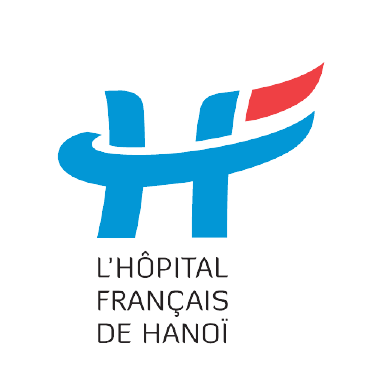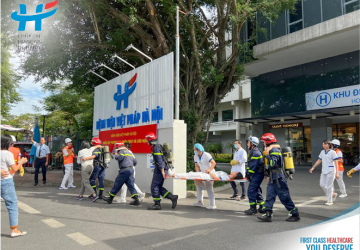Press & Media - Fri, 03/09/2018 - 14:46
Việt Nam News: Pain in the neck: Can your thyroid cause problems?
Last update 03/09/2018 - 14:52
Can your thyroid cause problems?
The thyroid is a gland located at the front, lower part of the neck just below your throat and is responsible for the secretion of specific hormones called T3 and T4. It can be affected by several diseases, two of which are very common.
1. A nodule
A nodule (lumps in the thyroid gland are called “nodules”) sometimes indicates a serious problem, such as cancer; but most of the time can be benign (non-cancerous) or related to an infection. A nodule can be either discovered by the patient because it is visible, or by a doctor during the course of a consultation. It can also be diagnosed during a routine neck ultrasound, for example during an annual health check up, which is able to detect very small nodules, smaller than 5mm. It should not worry you, if a nodule is discovered; only 5% of these turn out to be cancer. It is however very important to see your doctor straight away and to perform additional diagnostic tests to determine the nature of a nodule and a suitable treatment plan.
In some cases your doctor will only prescribe repeat ultrasound examinations at regular intervals together with control of your thyroid hormone levels. If there is suspicion of a more serious condition your doctor will discuss treatment options with you.
What will your doctor prescribe?
- A simple blood test to determine your thyroid hormone TSH and T4 levels and a specific marker for thyroid cancer (for thyroid medullar y cancer, which is very rare).
- A thyroid ultrasound which allows a detailed view of the tissue in and around your thyroid
- After these and in case cancer is suspected your doctor may prescribe a fine needle biopsy (FNB). During this examination a very thin needle is introduced into the nodule under ultrasound guidance, to retrieve some cells from a nodule for histological analysis and to eliminate or confirm a cancer. Because FNA is about as painful as drawing blood from the arm for laboratory testing (venopuncture), local anesthesia is usually not required. Although not painless, any discomfort associated with FNA is usually minimal.
Should your doctor recommend having your nodule(s) removed, several techniques are available. It is important to get to a diagnosis as soon as possible as recovery is almost a 100% from thyroid cancer, when caught at an early stage.
The proposed surgeries are either removal of half the thyroid (hemi thyroidectomy) or whole thyroid (total thyroidectomy), depending on your condition. This is a very common procedure under general anesthesia which will require a small incision in the neck that is usually barely visible and a couple of days in the hospital.
After and depending on the type of surgery, you will have to substitute the thyroid hormones by oral medication.
2. Hyperthyroidism:
A medical term for your thyroid producing too much of its hormone T4; when released to the blood in elevated quantities, this hormone becomes toxic to the body. Typical symptoms include:
- Fast heartbeat and/or palpitations
- Feeling hot
- Night sweats and thirst
- High blood pressure which can result in headaches and blurred vision
- Protrusion of the eyes, also called exophtalmus
What can cause it?
- Thyroid nodule(s) called toxic nodule(s), which can be treated by hemi-thyroidectomy
- Graves-Basedow disease, a condition affecting the whole thyroid. Treatment of choice for this condition is medical, which means you will have to take oral medicine suppressing the thyroid’s activity. Only if such treatment fails, either a complete surgical removal of the thyroid or a treatment with radioactive iodine will be proposed.
Whom should you consult if you suspect having a thyroid problem?
The endocrinologist may be consulted first. He will carry out the medical assessment and if a surgery is necessary will you to a specialist in ENT (Ear, Nose & Throat) & Neck Surgery
Prof. Dr. Pierre Verdalle is an internationally trained specialist in ENT and Head&Neck Surgery who has recently joined the French Hospital Hanoi to bring his expertise to our customers and colleagues.
For further information, please contact us at: (84-24) 3577 1100 or send us an inquiry here



